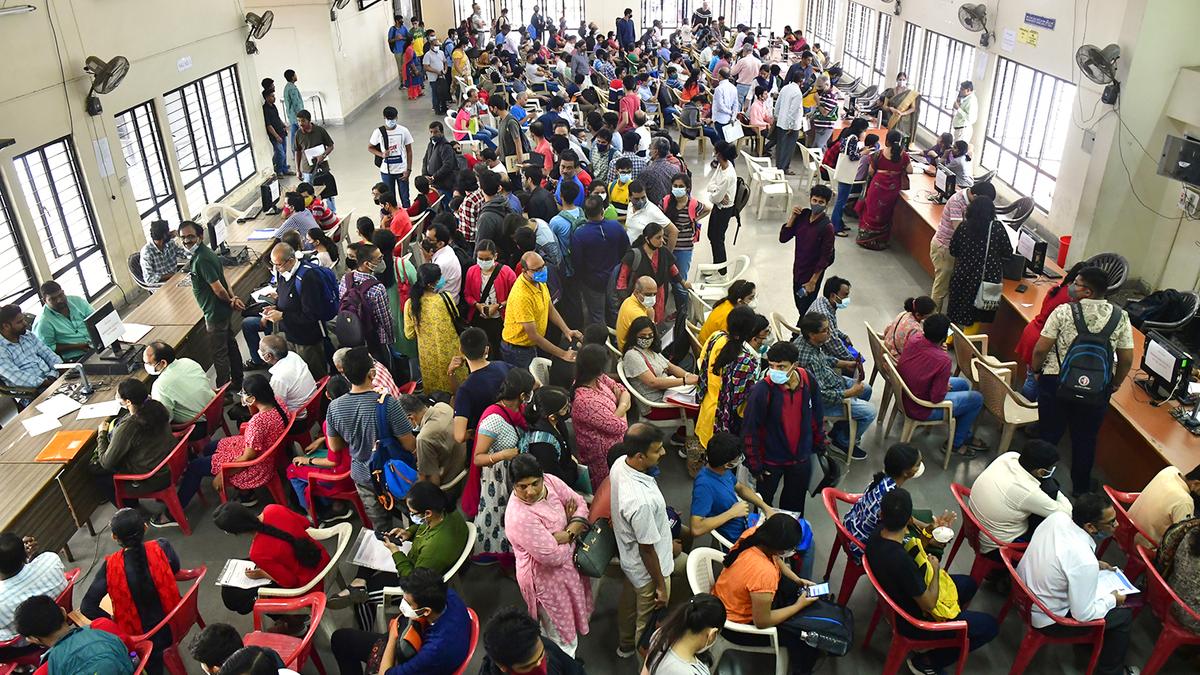In a move that has sent ripples through Karnataka’s higher education sector, the state government has denied seat enhancement requests from two of Bengaluru’s most prominent private engineering institutions—BMS College of Engineering and New Horizon College of Engineering—for the 2025-26 academic year. The decision, which comes amid allegations of seat-blocking scams and concerns over regulatory compliance, has ignited a heated debate about transparency, quality, and equity in engineering admissions across the state.
Both colleges had sought to increase their intake, particularly for high-demand courses such as Computer Science and Artificial Intelligence. However, the government, citing ongoing investigations and the need for stricter oversight, has withheld the necessary No Objection Certificate (NOC), effectively blocking the proposed expansion. This development has left thousands of aspiring engineering students and their families in limbo as the admission season enters its peak.


Seat-Blocking Scam Fallout: Why the Government Said No
Allegations and Oversight
The government’s refusal to grant NOC to BMS and New Horizon is rooted in recent revelations linking both institutions to alleged seat-blocking scams. These scams reportedly involve the artificial blocking of seats during the counseling process, only to later release them under management or higher-fee quotas, thereby manipulating the admission process and depriving deserving students of fair access. The fallout from these allegations has put the spotlight on the urgent need for transparent and accountable admission practices in private engineering colleges.
State education authorities have stated that until the investigations are complete and the colleges demonstrate full compliance with regulatory norms, no seat enhancement requests will be entertained. This stance is seen as a signal to other private institutions that the government is serious about curbing malpractice and ensuring merit-based admissions.
The government’s decision to withhold approval for seat enhancement at two leading private engineering colleges has sent shockwaves through the academic community, highlighting the increasing scrutiny on private institutions. Many educationists believe this move is a necessary corrective measure to curb malpractices that have plagued the sector for years. It underscores the importance of prioritizing quality education over mere expansion and revenue generation. The spotlight is now firmly on private colleges to demonstrate their commitment to maintaining high standards and ethical admission practices.
Students aspiring to pursue engineering in Karnataka are now facing heightened uncertainty. With fewer seats available in popular streams like Computer Science and Artificial Intelligence, the competition has intensified dramatically. Many students and parents are anxious about their chances of securing admission in reputed colleges and are exploring alternative options, including institutions in other states or lesser-known private colleges. This increased pressure could also lead to a rise in the demand for management quota seats, which are often criticized for their lack of transparency and affordability.
The controversy has reignited debates about the role of private engineering colleges in India’s higher education ecosystem. While these institutions have historically filled gaps left by limited government seats, concerns about quality, infrastructure, and equitable access persist. Critics argue that unchecked expansion without adequate oversight has diluted the value of engineering degrees and contributed to high unemployment among graduates. Advocates for reform emphasize that regulatory bodies must enforce stricter compliance and ensure that colleges invest in faculty development, research, and industry collaboration.
In response to the government’s firm stance, several private colleges have expressed willingness to cooperate with authorities and improve their standards. Some institutions have already initiated internal audits and quality enhancement programs to align with regulatory expectations. Industry experts suggest that such proactive measures will not only help colleges regain trust but also enhance their reputation and attract better students and faculty. The focus is shifting towards sustainable growth, where expansion is matched by tangible improvements in academic and infrastructural quality.
The government’s refusal to grant NOCs for seat enhancement also reflects broader concerns about the commercialization of education. Many stakeholders argue that the proliferation of private colleges driven by profit motives has compromised educational integrity. This incident serves as a reminder that education is a public good that requires careful regulation to protect students’ interests. Policymakers are under pressure to balance the need for increased access to technical education with the imperative of maintaining standards and fairness.
Impact on Students and the Admission Process
The immediate impact of the government’s decision is being felt by students who had hoped for increased availability in popular streams. With demand for Computer Science, Artificial Intelligence, and related fields at an all-time high, the lack of additional seats is likely to intensify competition and potentially drive more students toward management quota or direct admission routes, which are often more expensive and less transparent.
Engineering Education in Karnataka: Demand, Vacancies, and Quality Concerns
The Paradox of Vacant Seats
Karnataka boasts over 303 private engineering colleges affiliated with Visvesvaraya Technological University (VTU), in addition to several private and deemed universities. Despite the high number of qualifying students, a paradox persists: thousands of engineering seats remain vacant each year, even as students vie for admission to top institutions and in-demand branches. In 2023, for example, over 18,000 seats went unfilled, with government quota seats accounting for nearly 11,000 of those vacancies.

Experts attribute this to a combination of factors, including uneven quality of infrastructure, lack of skilled faculty, and a mismatch between the courses offered and industry demand. The government’s decision to halt seat enhancement is being interpreted as a push for colleges to first improve quality and compliance before seeking expansion.
The Role of Private Colleges and Management Quotas
Private engineering colleges have historically bridged the gap between limited government seats and soaring demand for technical education. However, the proliferation of management quota admissions—where 20-30% of seats are reserved for direct admission at higher fees—has raised concerns about equity and meritocracy. The current controversy over seat enhancement and seat-blocking scams has reignited calls for greater regulation and transparency in the private sector.
Calls for Reform: Infrastructure, Faculty, and Regulatory Action
Raising the Bar for Expansion
Education experts and regulatory authorities have emphasized that any increase in seat intake must be matched by commensurate improvements in infrastructure, faculty recruitment, and student support services. The Vice Chancellor of VTU has highlighted the need for colleges to invest in modern labs, high-quality teaching staff, and robust placement support to ensure that graduates are job-ready and competitive in the global market.
The All India Council for Technical Education (AICTE) has already relaxed caps on intake for engineering courses, but the onus remains on institutions to demonstrate readiness and compliance before seeking expansion. The government’s current stance is seen as a necessary step to ensure that growth does not come at the expense of quality.
Student and Parent Reactions
The decision has sparked mixed reactions among students and parents. While some have welcomed the move as a step toward cleaning up the admission process, others worry about increased competition and limited options in high-demand streams. Many are now considering alternative pathways, such as management quota admissions or seeking seats in private colleges outside Karnataka, where regulatory scrutiny may be less intense.

The Road Ahead: What This Means for Engineering Aspirants and Colleges
Implications for the 2025-26 Academic Year
With the government standing firm on its decision, BMS and New Horizon will have to operate within their existing seat limits for the upcoming academic year. This is expected to make the competition for Computer Science, Artificial Intelligence, and Data Science seats even fiercer, especially as these fields continue to drive placement opportunities and attract top talent. Students are being advised to apply early, explore all available options, and be wary of unofficial agents promising guaranteed admissions.
Long-Term Outlook for Private Engineering Education
The current controversy may serve as a turning point for private engineering education in Karnataka and beyond. There is growing consensus that sustainable growth must be built on a foundation of transparency, quality, and student welfare. Regulatory bodies are expected to intensify audits, enforce stricter penalties for malpractice, and incentivize colleges to prioritize academic excellence over expansion.
For students and their families, the message is clear: due diligence, awareness of admission processes, and a focus on skill development will be key to navigating the evolving landscape of engineering education in India.
Parents and student groups have welcomed the government’s decision as a step toward ensuring merit-based admissions. However, they also call for greater transparency in the admission process and timely communication from colleges and authorities. The lack of clarity around seat availability and admission criteria has often led to confusion and exploitation by unscrupulous agents. Strengthening grievance redressal mechanisms and providing clear, accessible information are seen as essential to restoring confidence in the system.
The ongoing situation has also prompted calls for revisiting the curriculum and pedagogy in engineering education. Industry leaders emphasize the need for courses that are aligned with current technological trends and market demands. They advocate for greater emphasis on practical skills, internships, and research opportunities to enhance employability. The government and academic bodies are expected to work closely with colleges to implement reforms that prepare students for the evolving global job market.
Looking ahead, the private engineering education sector in Karnataka is at a crossroads. The government’s assertive approach signals a new era of accountability and quality assurance. Colleges that embrace reform and prioritize student welfare are likely to thrive, while those resistant to change may face continued restrictions. For students, parents, and educators, this moment offers an opportunity to reflect on the true purpose of education and work collectively toward a system that is equitable, transparent, and excellence-driven.

